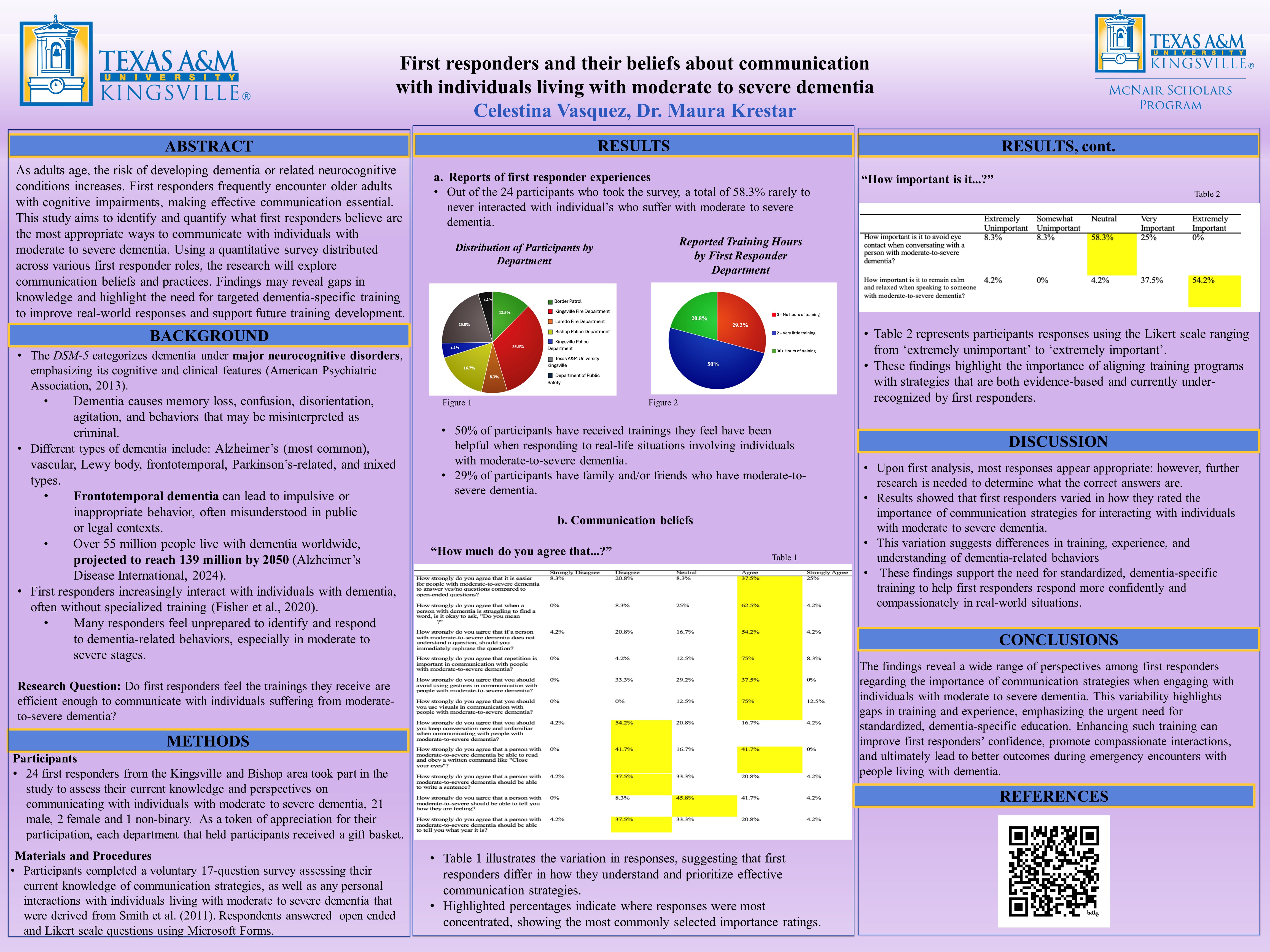As adults age, the likelihood of developing a mental illness such as dementia or related neurocognitive conditions increases. Given their role on the front lines of emergency care, first responders frequently interact with older adults who may exhibit symptoms of cognitive impairment, making their communication approach critical to ensuring effective and appropriate care. The purpose of this quantitative study was to identify and quantify what first responders’ perceptions of the most effective methods for communicating with individuals with moderate to severe dementia. The research study used a quantitative-based approach administering digital survey to first responder from various departments. A total of 24 participants, all qualified as first responders, completed a short survey containing questions about their job and their beliefs regarding appropriate ways to communicate with individuals with moderate to severe dementia. A goal was set to analyzing relationships between different first responder departments using descriptive statistics and correlation analysis based on the data collected. The study concluded that there is significant room for improvement on dementia-specific training for first responder departments. Findings from this study had the potential benefit first responder departments by identifying areas where knowledge about communicating with people who suffer from moderate to severe dementia is lacking. Recognizing gaps in areas such as communication, approach strategies, safe assistance for injured individuals, and improving the transport experience can lead to more tailored training programs. In doing so, first responders will gain more access to specific training and will be able to help those with moderate to severe dementia. This could increase the frequency of trainings through a first responder’s career. Identifying areas that are easily misunderstood may help improve the design of future training programs.
Keywords: first responder, trainings, dementia, Alzheimer’s, crime
Faculty Mentor: Dr. Maura Krestar
Department of Clinical Health Sciences


